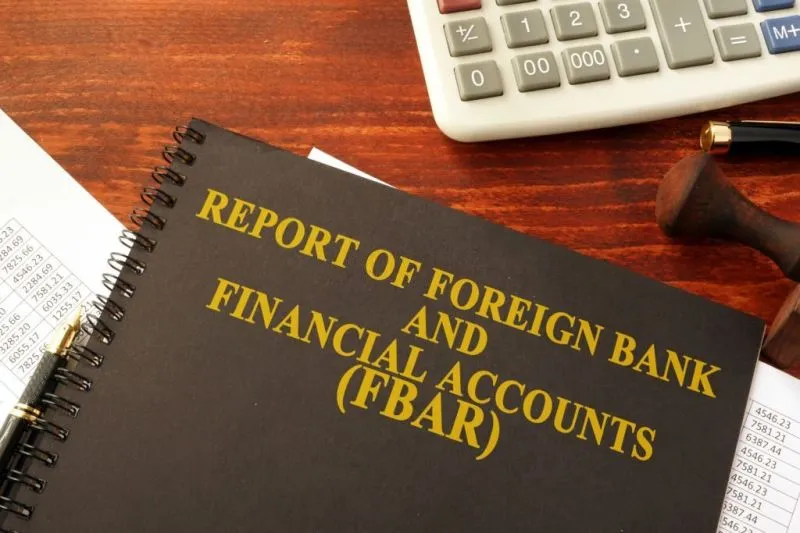The Foreign Bank Account Report (FBAR) is a critical requirement for U.S. taxpayers with foreign financial accounts.
Staying compliant with FBAR filing is essential to avoid severe penalties and legal consequences. This blog will delve into the key aspects of FBAR filing deadlines, penalties for late or non-filing, and tips to ensure timely submission.
By the end, you’ll understand what you need to do to stay compliant.
Understanding FBAR Filing Requirements
The FBAR is a form (FinCEN Form 114) that U.S. persons must file if they have a financial interest in or signature authority over foreign financial accounts with an aggregate value exceeding $10,000 at any time during the calendar year. This requirement applies to U.S. citizens, residents, and entities such as corporations, partnerships, and trusts.
Types of accounts that must be reported include:
- Bank accounts
- Brokerage accounts
- Mutual funds
- Other financial accounts held in foreign countries
Key Deadlines for FBAR Filing
The annual deadline for FBAR filing is April 15th. However, there is an automatic extension to October 15th, which means taxpayers do not need to request an extension to file by this date.
Despite the extension, it’s crucial to aim for the initial April 15th deadline to avoid any last-minute issues or potential oversight.
Penalties for Late or Non-Filing
Failing to file an FBAR on time can result in significant penalties. These penalties are categorized into civil and criminal penalties:
- Civil Penalties: The civil penalty for non-willful violations can be up to $12,921 per violation. For willful violations, the penalty can be the greater of $129,210 or 50% of the account balances at the time of the violation.
- Criminal Penalties: Willful failure to file an FBAR can result in severe criminal penalties, including fines up to $500,000 and imprisonment for up to ten years.
Tips for Timely FBAR Submission
Staying compliant with FBAR filing deadlines requires diligent record-keeping and proactive planning. Here are some tips to help you file on time:
- Keep Accurate Records: Maintain detailed records of all your foreign financial accounts, including account balances, account numbers, and the names and addresses of the financial institutions.
- Use Financial Software: Utilize financial tracking software to monitor your account balances and aggregate them to ensure they do not exceed the $10,000 threshold.
- Consult a Professional: Engaging with an Irvine tax attorney can provide you with the necessary guidance and support to ensure compliance. Professionals can help you navigate the complexities of FBAR filing and avoid costly mistakes.
- Set Reminders: Establish reminders for key dates and deadlines to ensure you file your FBAR on time. Setting alerts a few weeks before the deadline can give you ample time to gather all necessary information.
How to Handle Missed Deadlines
If you miss the April 15th deadline, it’s essential to utilize the automatic extension to October 15th. However, if you miss both deadlines, you still have options to mitigate penalties:
Delinquent FBAR Submission Procedures
The IRS offers procedures for taxpayers who have not been contacted regarding a delinquent FBAR and are not under civil or criminal investigation by the IRS. By filing late under these procedures, you may avoid penalties.
Voluntary Disclosure Programs
These programs allow taxpayers to disclose their foreign accounts voluntarily and come into compliance with U.S. tax laws. Engaging with a tax debt attorney can help you navigate these programs effectively.
Conclusion
Staying compliant with FBAR filing is crucial for U.S. taxpayers with foreign financial accounts. Understanding the requirements, adhering to deadlines, and knowing how to handle missed deadlines are vital steps to avoid significant penalties.
Seeking assistance from an Irvine tax debt attorney can provide you with the expertise needed to manage your FBAR filings accurately and timely. For more information on FBAR filing, you can visit the IRS and FinCEN websites. These resources offer detailed guidelines and forms necessary for compliance.








